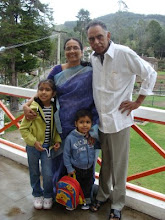Two days ago, during one of the several bus strikes we Keralites are facing, I gave a lift to one of the students waiting for a bus which would never come. The boy a 12 th std student, was carrying a big backpack containing his books and another one with his lunchbox and project work materials. He was much relieved when I offered him to drop him near his house.
We started conversation and I casually asked about his studies, probably just like any other parent would d0. He told me that he wasn't happy with his grades falling after every exam and his dad who was an NRI, was furious as well. I enquired if he has ever given any thought why he couldn't score better marks. I didn't have to wait for a reply. He just didn't like maths and any course associated with that subject. I asked him why did he chose a subject he hated. ( he had chosen first group) He informed me it was because his dad pressurised him to take first group to chart a course in engineering. He was more interested in visual arts as he was a good artist, singer and an actor. He wanted to go into advertising and short film making about which he was very passionately talking.
That incident set me thinking. Why do we parents coerce our children to study a subject which they're not interested in? Is it a status symbol to make our children an engineer or a doctor? Parents often commit the mistake of comparing our children with others. I have done it myself. Only now Ifeel how stupid it is to wish one's offsprings to try to usurp the personality of another thus losing their own individuality. Clearly, it kills the natural instincts in them. Every student cannot become a brilliant engineer or an expert doctor or a great scientist. They must pursue the vocation of their choice and liking and become successful in their careers.
Venkataraman Ramakrishnan was very reluctant to address meetings in India because he knew the type of questions he'd face. In one of the intractive sessions in Mumbai he was asked by a student (persumably coaxed by his parent) what he should do to become a nobel prize winner. I reproduce below what the great scientist said: ' That is a sure way to fail. You go into science to solve a problem, not to find ingredients of success'. This should serve as an eye-opener to parents and teachers.
Friday, January 8, 2010
Subscribe to:
Posts (Atom)
